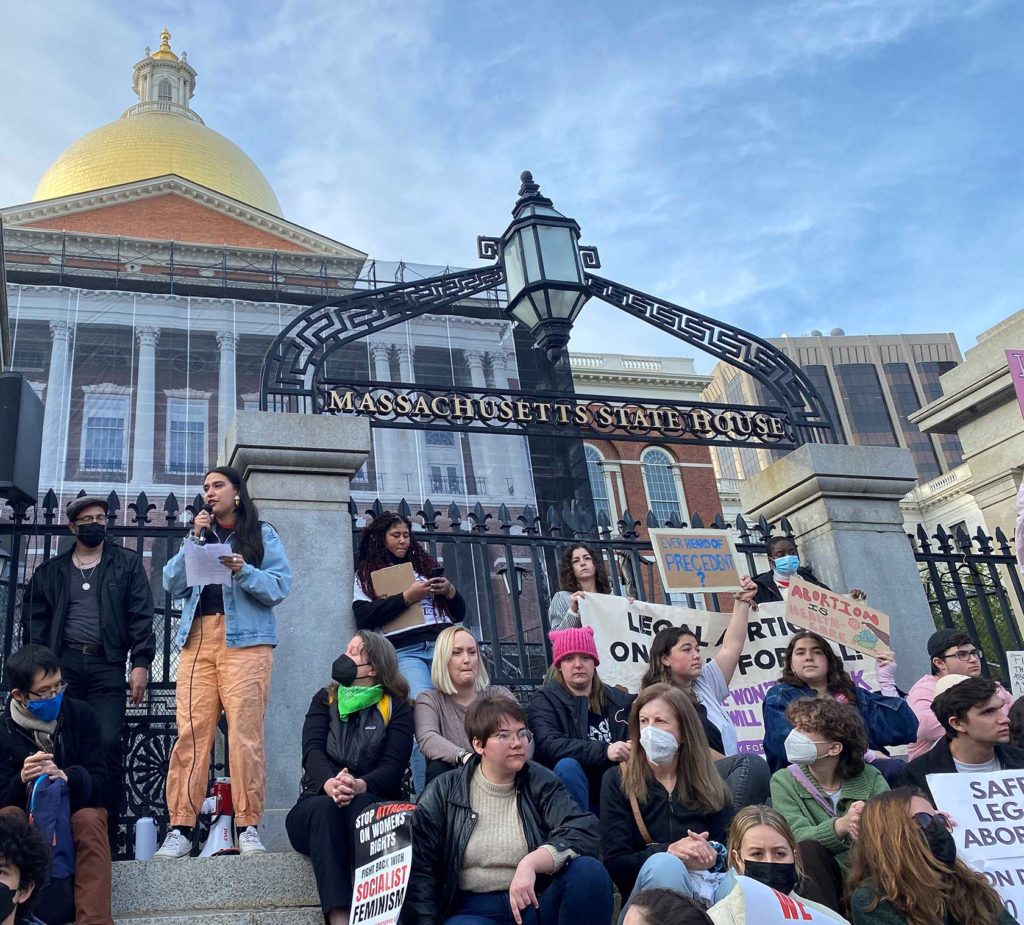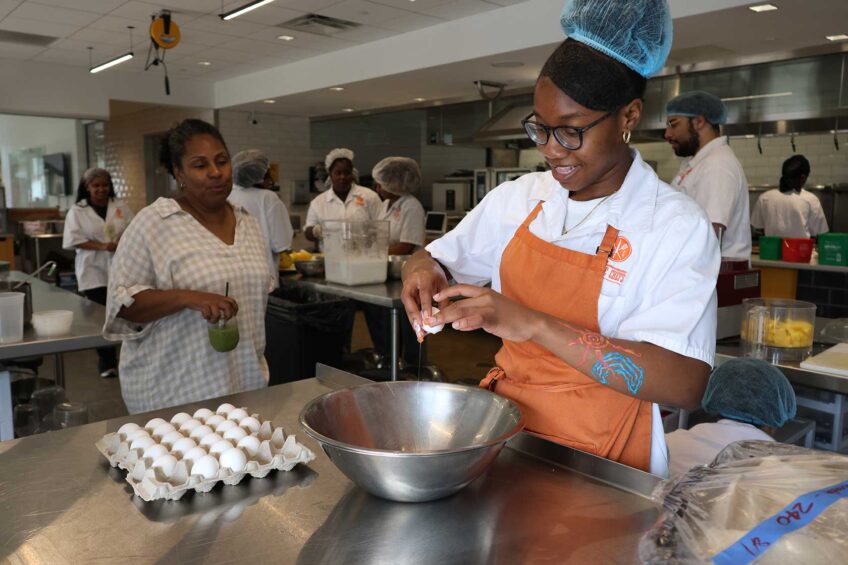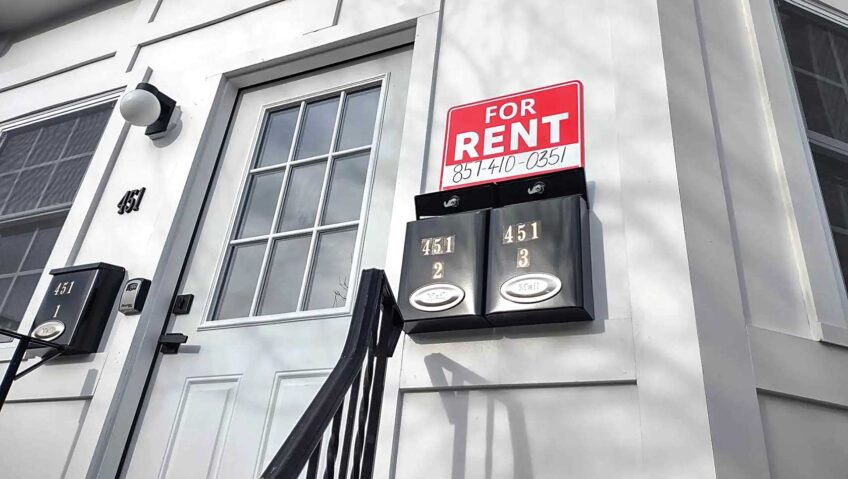Local activists protest after Roe opinion leaked
Call for push to codify abortion in federal law

More than a thousand protestors and activists showed up in front of the State House last week, following the leaked release of a Supreme Court opinion that would strike down the landmark 1973 Roe v. Wade decision legalizing abortion.
While not a binding document, the opinion, written by Justice Samuel Alito, signals a strong likelihood that the court will vote in favor of overturning Roe v. Wade this summer. The leaked document was first published by Politico earlier last week.
On May 3, in front of the State House, several speakers addressed activists who came bearing signs with slogans like “We won’t go back” and “Abortion is health care.” Additionally, coat hangers — both real and drawn — could be seen scattered across the crowd, symbolizing the risks of at-home abortions.

Mayor Michelle Wu joins local elected officials in a press conference on the Supreme Court’s leaked memo on Roe v. Wade. PHOTO: Jeremiah Robinson, Mayor’s Office.
“The Supreme Court is threatening a war on women’s rights,” said Maddie Dery, a union organizer with the Party for Socialism and Liberation. “And the only force capable of putting a stop to them is the people of the United States mobilizing and organizing to defend our rights.”
Others who spoke addressed the disproportionate effect the ruling will likely have on working-class women of color, the impact on transgender and other LGBTQ people seeking reproductive care and the need for better sex education in schools.
Jazmin Morinigo, an organizer with the Boston Liberation Center (BLC), told the crowd, “Even in the most restrictive circumstances, those who can afford it will be able to purchase an abortion. But that’s not the reality for us.”
Morinigo was one of several speakers who noted the negative impact, including financial hardship, emotional toll and even risk of death, that an unplanned pregnancy could have on working class mothers of color.
In addition, many spoke about a perceived injustice over an unelected body’s power to legislate bodily autonomy.
“We’re always being shot down by five people out of a group of nine unelected politicians,” Mandy Wilkens, an organizer also with the BLC, told the crowd. “We’re supposed to believe this is a democracy.”
On top of criticizing the Supreme Court, activists took the opportunity to critique elected officials, particularly Democrats, for their lack of movement in protecting abortion rights.
“Democrats have used abortion as a campaign talking point for decades,” said Claire Grossi, an organizer with the group Socialist Alternative. “And yet they haven’t done anything to actually codify Roe v. Wade, and they stood on the sidelines for years while right wing Republicans have launched attack after attack.”
U.S. Rep. Ayanna Pressley called on her colleagues in Congress to codify the right to abortion in law, a move that would override a Supreme Court decision and prevent states from enacting laws restricting women’s rights to obtain an abortion.
In a statement sent to news media last week, Pressley said, “We know that our most vulnerable communities will bear the disproportionate brunt of any decision to restrict and deny access to abortion care — particularly Black, brown, Indigenous, LGBTQIA+ and low-income people. We must legislate as if our lives depend on it, because they do. The Senate must move with urgency to abolish the filibuster and pass the Women’s Health Protection Act without delay.”
Early Tuesday afternoon, local elected officials had come together on the same steps to speak out against the potential ruling, including Mayor Michelle Wu, who vowed to fight for reproductive rights.
“Laws restricting reproductive rights aren’t effective in reducing the number of abortions — they only make them less safe,” she said. She promised to do “everything it takes” to defend reproductive health care.
Even if the ruling passes this summer, abortion laws in the Bay State will remain largely unchanged, with legislators having passed the ROE Act strengthening reproductive health care rights in 2020. That didn’t stop those gathered from calling on their federal lawmakers to pass bills codifying abortion for all. That includes the Women’s Health Protection Act, which would eliminate waiting periods and other barriers to abortion while making the procedure legal nationwide.







